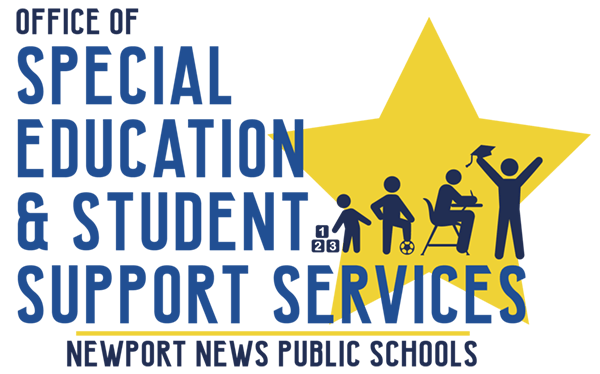Special Education at NNPS
Vivian Vitullo
Director of Special Education
(757) 283-7850
Transition Services
The key to a successful transition is early and thoughtful planning. Students must be actively involved in the planning process.
Administration
Steven Teresi, Program Administrator, Transition Programs
(757) 283-7850 x.10430
Fax: (757) 599-5605
What is Transition Planning?
The federal law, Individuals with Disabilities Education Act (IDEA) 2004, defines secondary transition as a coordinated set of activities designed to be within a results-oriented process, focused on improving the academic achievement and functional performance to facilitate movement from school to post-school activities.
Virginia Regulations Governing Special Education Programs for Children with Disabilities states that secondary transition services will be addressed prior to the child entering secondary school but not later than when the child turns 14, or younger if determined appropriate by the IEP team, and updated annually thereafter.
The IEP shall include age-appropriate measurable postsecondary goals based upon age-appropriate transition assessments related to training, education, employment, and where appropriate, independent living skills; and transition services, including courses of study, needed to assist the child in reaching those goals.
- Postsecondary education
- Career and technical education
- Integrated employment
- Continuing/adult education
- Adult services
- Independent living
- Community participation
The key to a successful transition is early and thoughtful planning. Students must be actively involved in the planning process.
Transition Planning is based upon:
- Student's preferences
- Student's interests
- Student's needs
- Student's strengths
Transition services include:
- Activities needed to assist the student in reaching postsecondary goals
- Courses of study
Who can participate in Transition planning?
- Student
- Parents or guardians
- Special educator
- Guidance counselor
- CTE teacher
- Vocational evaluator
- Therapist
- Adult agency services providers
- Anyone who has a vested interest in the student's postsecondary activities
Transition Services provided in NNPS:
- Informal transition assessments
- Transition planning & attendance to IEP meetings
- Career and technical course referrals
- Referral source to local agencies
- Transition data collection
- Tours
-- Versability of the VA Peninsula
-- New Horizons Regional Education Center
-- Woodrow Wilson Rehabilitation Center
Transition Programs in NNPS:
- Versability Supported Day Program
- Versability Transition Computer Program
- Career & Technical Education Programs
- Career Evaluations
- Practical Assessment Exploratory System (PAES Lab)
- Work Experience (WE) I, II, III
Educational options after High School:
- Community Colleges
- Four-year Colleges
- On-the-Job Training
- Apprenticeships
- Military Service
- Adult Education
- Technical Schools
- Independent Living Skills
Web Resources
- VDOE: Transition Services for Students with Disabilities
- VDOE: Benefits Counseling
- VDOE: Assistive Technology
- Department of Health & Human Services
- Division on Career Development & Transition
- Virginia Division on Career Development & Transition
- Institute for Community Inclusion
- VDOE: I'm Determined
- Peninsula Council for Workforce Development
- Virginia Board for People with Disabilities
Community Resources
Versability Resources (Formerly known as The ARC of the Virginia Peninsula)
(757) 896-8446
Community Services Board (CSB)
(757) 788-0300
Virginia Department of Rehabilitative Services (DARS)
(757) 865-4863
Eggleston Services
(757) 858-8011
Goodwill Industries of Hampton Roads
(757) 248-9405
Newport News Redevelopment & Housing Authority (NNRHA)
(757) 928-2620
Newport News Parks & Recreation
(757) 926-1400
New Horizons Regional Education Center (NHREC)
(757) 874-4444
Parent Educator Resource Center
(757) 591-4527
Peninsula Center for Independent Living (CIL)
(757) 827-0275
Peninsula Worklink One-Stop Career Center
(757) 766-4900
Youth Career Café
(757) 249-2104 (Patrick Henry Mall)
Work Experience I - Community-Based Instruction (CBI) Program







